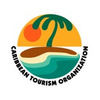Caribbean Tourism Industry Performance Report 2016
Presented by Hugh Riley, Secretary General, Caribbean Tourism Organization Thursday, February 9, 2017
Caribbean tourism continues to break new ground, surpassing 29 million arrivals for the first time in our history, and once again we have grown faster than the global average.
Despite political uncertainties, security and economic challenges in our main source markets, tourist arrivals to the Caribbean increased by 4.2 percent in 2016, better than the 3.9 per cent overall, internationally.
Encouragingly, we welcomed over one million more visitors last year than in 2015, to reach 29.3 million, continuing our proud record of growth for the seventh straight year.
In addition, cruise passenger arrivals grew by an estimated 1.3 percent, to approximately 26.3 million.
The United States continued to be our primary long-stay market, increasing by three-and-a-half percent and providing just about half of all arrivals. But while figures from the U.S National Travel & Tourism Office for the month of November showed that the Caribbean's share of the U.S outbound market was second only to Europe, the growth rate was the slowest among all regions.
For the Caribbean it was from Europe where we saw the strongest growth. Despite terrorist attacks in some countries, the Brexit referendum in the UK and bumpy economic outcomes across continental Europe, Caribbean arrivals from UK/Europe climbed by over 11 percent, to reach 5.6 million, with the UK registering a growth of over four per cent, and Germany up by more than eight per cent.
The strong European performance was evident in the healthy increases of between 6 percent and 16.8 percent in each month, compared to the corresponding months in 2015.
The vexing issues of costly and fragmented intra-Caribbean travel were still in place last year. However, travel within the region increased for the second straight year, a clear sign of the interest by Caribbean people in taking vacations to their neighbouring countries.
Conversely, Canada, a strong and reliable market for us during the challenging recession years, was uncharacteristically feeble last year, recording a drop of nearly 3.5 percent when compared to 2015.
No doubt, we are proud of our region's performance in 2016 - the result of the combined efforts of our member countries, the CTO and our partners, who planned and executed a number of attractive and excellent programmes and activities to attract visitors and have them talking and writing and sharing images about the Caribbean.
Our Year of Romance, for example, received broad participation despite the threat of Zika, and our social media campaigns in support of the year reached over 20 million people.
Still, we had our shortfalls; our region did not break the 30 million arrivals barrier we had hoped for; but at 29.3 million there is still reason to celebrate.
Among the countries reporting increases, growth was uneven, ranging from flat, to as high as 19 percent; while about one-fifth of the countries reported declines.
Our hotel partners also experienced negative results when compared to 2015. These are important metrics which require particular attention. While it is critically important to monitor the numbers of visitors we welcome to our shores, knowing where they stay, how long they stay, what they spend and what contribution they make to the overall economy are all vital data points.
According to Smith Travel Research, all hotel indicators were down, with the exception of the number of available rooms, which grew by just over one per cent. We'll share more details on that, in the presentation which follows.
In conclusion, no doubt, 2016 will be remembered as another successful year for the Caribbean's main foreign exchange earner, with new record levels of visitor expenditure, tourist- and cruise-passenger arrivals.
But the year will also be remembered as a challenging one for the hotel sector which continues to be under pressure.
In the months ahead, we expect that tourist arrivals to the region will grow at a slower rate; between 2.5 per cent and 3.5 per cent in 2017. We also project increases of between 1.5 percent and 2.5 per cent in cruise passenger arrivals. So all things being equal we're expecting growth in 2017, but it will not be robust.
I will now ask our Acting Director of Research, Ryan Skeete to dissect the numbers and give us his analysis.
About The Caribbean Tourism Organization (CTO)
The Caribbean Tourism Organization (CTO), with headquarters in Barbados, offices in New York and London and representation in Canada, is the Caribbean's tourism development agency comprising membership of the region's finest countries and territories including Dutch, English, French and Spanish-speaking, as well as a myriad of private sector allied members. The CTO's vision is to position the Caribbean as the most desirable, year-round, warm weather destination, and its purpose is Leading Sustainable Tourism - One Sea, One Voice, One Caribbean.
Among the benefits to its members the organization provides specialized support and technical assistance in sustainable tourism development, marketing, communications, advocacy, human resource development, event planning & execution and research & information technology.
Johnson JohnRose
CTO
(246) 427-5242
Caribbean Tourism Organization (CTO)
